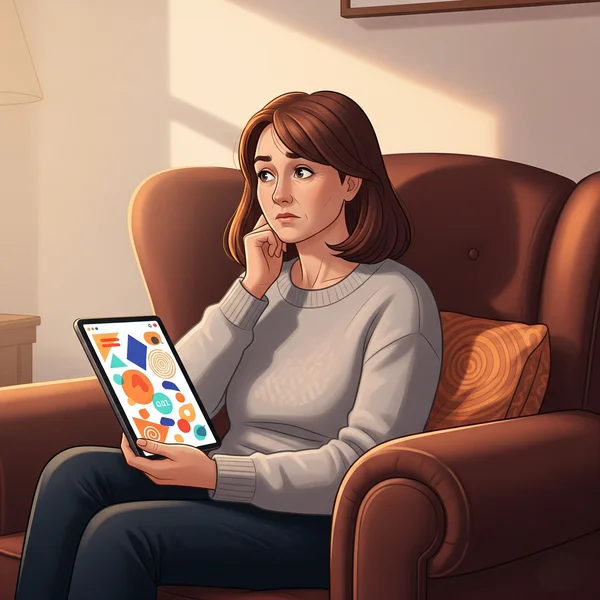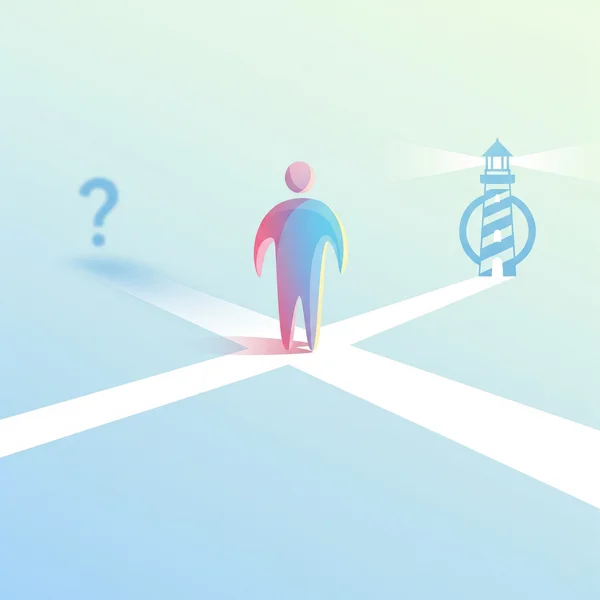Bin ich autistisch? Anzeichen, Selbsteinschätzung & Unser Quiz
July 6, 2025 | By Phoebe Harrington
Autismus im Erwachsenenalter: Zweifel, Schlüsselzeichen und Ihr erster Schritt zur Einschätzung
Haben Sie sich jemals gefragt: "Bin ich autistisch?" Vielleicht haben Sie bestimmte Muster in Ihren sozialen Interaktionen, Ihrem Kommunikationsstil oder Ihren intensiven Interessen bemerkt, die sich von denen Ihrer Mitmenschen unterscheiden. Was sind die Anzeichen von Autismus bei Erwachsenen? Diese Frage führt viele Erwachsene auf eine Reise der Selbstentdeckung. Wenn Sie als Erwachsener darüber nachdenken, ob Sie möglicherweise im Autismus-Spektrum liegen, sind Sie nicht allein. Das Verständnis der gängigen autistischen Merkmale und die Nutzung einer zuverlässigen Autismus-Selbsteinschätzung können ein stärkender erster Schritt sein. Wir bieten ein wissenschaftlich fundiertes Bin ich autistisch Quiz, das Ihnen helfen soll, erste Einblicke zu gewinnen.
Was ist Autismus-Spektrum-Störung (ASS) bei Erwachsenen?

Wie kann ich feststellen, ob ich autistisch bin? Bevor wir uns spezifischen Anzeichen zuwenden, ist es hilfreich zu verstehen, was die Autismus-Spektrum-Störung (ASS) bedeutet, insbesondere bei Erwachsenen. ASS ist eine neuroentwicklungsbedingte Störung, die durch eine breite Palette von Unterschieden in der sozialen Kommunikation, der sozialen Interaktion und durch eingeschränkte, repetitive Verhaltensmuster, Interessen oder Aktivitäten gekennzeichnet ist. Der Begriff "Spektrum" ist entscheidend, da Autismus bei jedem Menschen anders ausgeprägt ist. Es gibt kein einziges "Aussehen" für einen autistischen Erwachsenen; Erfahrungen und Merkmale variieren stark. Das Verständnis dieser Vielfalt ist entscheidend für eine genaue Selbstreflexion. Viele Erwachsene leben ihr Leben ohne eine Autismus-Diagnose und entwickeln manchmal komplexe Bewältigungsmechanismen. Die Möglichkeit von Autismus im Erwachsenenalter zu erkennen, kann eine aufschlussreiche Erfahrung sein, die Erklärungen für lebenslange Muster liefert und den Weg für ein besseres Selbstverständnis ebnet.
Erkennen von Anzeichen von Autismus bei Erwachsenen: Könnte das auf Sie zutreffen?

Die Identifizierung potenzieller Anzeichen von Autismus bei Erwachsenen beinhaltet die Betrachtung verschiedener Aspekte, wie Sie die Welt erleben. Denken Sie daran, dass das Vorhandensein einiger dieser Merkmale nicht automatisch bedeutet, dass Sie autistisch sind, aber sie können Indikatoren sein, die es wert sind, genauer untersucht zu werden, idealerweise mit einem autistischen Quiz.
Unterschiede in sozialer Kommunikation und Interaktion
Finden Sie soziale Situationen oft verwirrend oder anstrengend? Viele autistische Erwachsene haben Schwierigkeiten mit dem Verständnis sozialer Signale, was sich in Problemen bei der Interpretation von Körpersprache, Mimik oder Tonfall äußern kann.
- Reziprozität in der Konversation: Schwierigkeiten, ein Hin- und Her-Gespräch zu beginnen oder aufrechtzuerhalten, oder vielleicht Gespräche mit Themen von intensivem Interesse zu dominieren.
- Blickkontakt: Blickkontakt kann sich unangenehm, unnatürlich oder zu intensiv anfühlen, um ihn aufrechtzuerhalten.
- Aufbau und Pflege von Beziehungen: Obwohl sie sich nach Verbindung sehnen, kann der Aufbau und die Aufrechterhaltung von Freundschaften oder romantischen Beziehungen aufgrund von Unterschieden im sozialen Verständnis oder Kommunikationsstil schwierig sein. Dieser Aspekt führt oft dazu, dass Einzelpersonen eine Online-Autismus-Screening suchen.
Repetitive Verhaltensweisen und eingeschränkte, intensive Interessen
Sind Routinen, Vorhersehbarkeit oder tiefgehende Auseinandersetzungen mit bestimmten Themen ein wichtiger Teil Ihres Lebens? Dies können häufige autistische Merkmale sein:
- Repetitive Bewegungen oder Sprache: Dies kann Stimmen (z. B. Händeflattern, Schaukeln, Wiederholen von Phrasen) umfassen, was eine Möglichkeit zur Selbstregulation oder zum Ausdruck von Emotionen sein kann.
- Starke Einhaltung von Routinen und Widerstand gegen Veränderungen: Unerwartete Änderungen können sehr belastend sein. Eine vorhersehbare Struktur bietet oft Komfort und reduziert Angst.
- Stark eingeschränkte und fixierte Interessen: Ein intensives, tiefes und oft hochspezialisiertes Interesse an bestimmten Themen. Dieser Fokus kann eine Quelle großer Freude und Expertise sein. Viele finden, dass eine Autismus-Selbsteinschätzung hilft, diese intensiven Interessen zu kontextualisieren.
- Ungewöhnliche Bindung an Objekte: Bestimmte Objekte können eine bedeutende Wichtigkeit haben oder Komfort bieten.
Sensorische Empfindlichkeiten (Über- oder Unterreagierend)
Wie funktioniert ein autistisches Quiz, um sensorische Erfahrungen zu erfassen? Während Quizfragen nach Verhaltensweisen fragen, sind sensorische Empfindlichkeiten ein Kernaspekt:
- Überempfindlichkeit (Hypersensibilität): Leicht überfordert von hellem Licht, lauten Geräuschen, starken Gerüchen, bestimmten Texturen von Nahrungsmitteln oder Kleidung. Dies kann zu sensorischer Überlastung führen.
- Unterempfindlichkeit (Hyposensibilität): Suchen nach starken sensorischen Reizen, hohes Schmerzempfinden oder Nichtbemerken von Empfindungen, die andere wahrnehmen würden.
- Ungewöhnliche sensorische Interessen: Eine Faszination für bestimmte Lichter, Geräusche oder Texturen. Diese sensorischen Unterschiede beeinflussen das tägliche Leben erheblich und sind ein wichtiger Teil der Erfahrung der Autismus-Spektrum-Störung.
Weitere häufige autistische Merkmale bei Erwachsenen
Über die Kernkriterien hinaus sind weitere Erfahrungen verbreitet:
- Unterschiede in der exekutiven Funktion: Schwierigkeiten bei der Planung, Organisation, Einleitung von Aufgaben und Zeitmanagement.
- Meltdowns oder Shutdowns: Intensive Reaktionen auf Überforderung. Ein Meltdown kann ein äußerer Ausdruck von Not sein, während ein Shutdown ein innerer Rückzug ist.
- Wörtliche Interpretation von Sprache: Schwierigkeiten, Sarkasmus, Redewendungen oder implizite Bedeutungen zu verstehen.
- Ein starker Gerechtigkeitssinn.
- Angst oder Depression: Diese treten oft zusammen mit Autismus auf, manchmal aufgrund des Stresses, eine neurotypische Welt zu navigieren oder autistische Merkmale zu verbergen. Unser autistisches Quiz online kann ein Ausgangspunkt für die Erforschung dieser miteinander verbundenen Erfahrungen sein.
Das "Bin ich Autistisch Quiz": Ein Werkzeug zur Selbstreflexion
Was tun, wenn ich denke, ich bin autistisch? Ein ausgezeichneter erster Schritt ist die Berücksichtigung eines wissenschaftlich fundierten Screening-Tools. Das "bin ich autistisch Quiz" auf unserer Plattform dient als wertvolles Instrument zur Selbstreflexion und für erste Einblicke.
Warum ein Online-Selbsttest für Autismus in Betracht ziehen?
Die Teilnahme an einer Online-Autismus-Selbsteinschätzung kann mehrere Vorteile bieten:
- Erste Einblicke: Es kann Ihnen helfen zu verstehen, ob Ihre Erfahrungen mit häufigen autistischen Merkmalen übereinstimmen, und bietet einen Rahmen für Ihre Gefühle und Beobachtungen.
- Selbstverständnis: Die Fragen selbst können aufschlussreich sein und Sie dazu anregen, über Aspekte Ihres Lebens nachzudenken, die Sie zuvor vielleicht noch nicht mit einer möglichen Neurodivergenz in Verbindung gebracht haben.
- Vertrauliche Überprüfung: Unsere Plattform bietet eine private und zugängliche Möglichkeit, diese Fragen ohne sofortigen Druck oder Urteil zu erkunden. Sie können auf diese vertrauliche Überprüfung hier zugreifen.
- Grundlage für weitere Schritte: Obwohl keine Diagnose, können die Ergebnisse ein hilfreicher Ausgangspunkt sein, wenn Sie sich für eine professionelle Einschätzung entscheiden.
Wie unser autistisches Quiz (basierend auf DSM-5 & Forschung) funktioniert
Das autistische Quiz auf unserer Website ist nicht einfach nur eine zufällige Zusammenstellung von Fragen. Es basiert auf:
- Wissenschaftliche Grundlage: Die Tests basieren auf etablierten psychometrischen Prinzipien und stützen sich auf maßgebliche Quellen wie die DSM-5-Kriterien (Diagnostic and Statistical Manual of Mental Disorders, 5th Edition).
- Von Experten entwickelte Skalen: Wir verwenden Skalen, die von führenden Institutionen wie dem Autism Research Centre der Cambridge University entwickelt wurden, um sicherzustellen, dass die Fragen relevant und gut erforscht sind.
- Umfassende Überprüfung: Die Quizfragen zielen darauf ab, eine Reihe von Merkmalen abzudecken, die mit Autismus bei Erwachsenen verbunden sind, und bieten eine ganzheitlichere vorläufige Sicht. Unser Ziel ist es, ein zuverlässiges Online-Autismus-Screening anzubieten.
Was Sie vom Test erwarten können
Wenn Sie unser autistisches Quiz durchführen:
- Fragenarten: Sie werden eine Reihe von Multiple-Choice-Fragen vorfinden, die darauf abzielen, verschiedene Verhaltensmuster, Vorlieben und Erfahrungen zu bewerten.
- Zeitaufwand: Die meisten unserer Quizze können in einer angemessenen Zeit abgeschlossen werden, typischerweise 10-20 Minuten.
- Sofortige Ergebnisse: Nach Abschluss erhalten Sie sofort Ihre Ergebnisse.
- Ergebnisinterpretation: Die Ergebnisse werden von einer detaillierten Interpretation begleitet, die Ihnen hilft zu verstehen, was Ihr Ergebnis bezüglich autistischer Merkmale und deren Ausprägung bedeuten könnte. Diese Ergebnisinterpretation ist ein wichtiges Merkmal, um Ihnen zu helfen, die ersten Einblicke zu verstehen.
Der erste Schritt: Ihre Reise mit unserem autistischen Quiz

Eine Reise der Selbstentdeckung anzutreten, kann einschüchternd wirken, aber der erste Schritt ist oft der wichtigste. Wenn Sie fragen: "Bin ich autistisch?", ist unser autistisches Quiz darauf ausgelegt, dieser zugängliche, informative erste Schritt zu sein. Es ist eine Möglichkeit, Ihre Merkmale privat zu erforschen und in einer unterstützenden Umgebung erste Einblicke zu gewinnen. Denken Sie daran, es geht darum, sich selbst besser zu verstehen. Entdecken Sie unser Autistisches Quiz und beginnen Sie Ihre Reise.
Sich selbst besser verstehen: Nächste Schritte nach Ihrem autistischen Quiz
Das Ausfüllen eines "bin ich autistisch Quiz" kann eine Mischung aus Emotionen und neuen Fragen hervorrufen. Es ist wichtig zu bedenken, dass ein Online-Screening-Tool Hinweise gibt, aber keine formelle Diagnose darstellt. Die Ergebnisse des autistischen Quiz auf unserer Plattform sind so konzipiert, dass sie wertvolle Punkte zur Selbstreflexion bieten und Bereiche hervorheben, die mit bekannten autistischen Merkmalen übereinstimmen. Dies kann für viele Erwachsene eine unglaublich bestätigende Erfahrung sein. Nutzen Sie diese ersten Einblicke als Katalysator für weiteres Lernen und, wenn Sie es für angemessen halten, für Gespräche mit Fachleuten.
Ihre Fragen zu Autismus-Quizzen für Erwachsene beantwortet
Hier sind einige häufig gestellte Fragen von Erwachsenen zu Autismus-Quizzen:
Ist ein "Bin ich autistisch Quiz" eine medizinische Diagnose?
Nein, ein "bin ich autistisch Quiz" oder jede Online-Autismus-Selbsteinschätzung ist keine medizinische Diagnose. Diese Tools sind nur für Screening-Zwecke konzipiert. Sie können darauf hinweisen, ob Sie Merkmale aufweisen, die häufig mit Autismus-Spektrum-Störungen verbunden sind, und darauf hindeuten, dass eine weitere professionelle Beurteilung von Vorteil sein könnte. Eine formelle Diagnose kann nur von einem qualifizierten Fachmann im Gesundheitswesen, wie einem Psychologen, Psychiater oder Neurologen, nach einer umfassenden Beurteilung gestellt werden. Sie können jedoch unser Screening-Tool als Ausgangspunkt nutzen.
Wie genau sind Selbsteinschätzungs-Quizze für Autismus bei Erwachsenen?
Die Genauigkeit eines Selbsteinschätzungs-Quizzes für Autismus bei Erwachsenen hängt stark von seinem Design und den verwendeten Skalen ab. Quizze wie die auf unserer Website angebotenen, die auf DSM-5-Kriterien und Forschungen von Institutionen wie der Cambridge University basieren, streben eine höhere Zuverlässigkeit bei der Erkennung von autistischen Merkmalen an. Sie sind jedoch immer noch Selbstauskünfte und sollten als hinweisend und nicht als endgültig betrachtet werden. Ihr Hauptwert liegt darin, erste Einblicke zu geben und die Selbstreflexion zu leiten.
Was, wenn die Ergebnisse des Autismus-Quiz darauf hindeuten, dass ich autistisch bin?
Wenn Ihre Ergebnisse im autistischen Quiz darauf hindeuten, dass Sie zahlreiche autistische Merkmale aufweisen, kann es hilfreich sein, mehr über Autismus bei Erwachsenen zu erfahren. Sie könnten Bücher, Artikel aus seriösen Quellen lesen oder sich mit autistischen Gemeinschaften online vernetzen. Wenn Ihre Merkmale Ihnen Kummer bereiten oder Ihren Alltag beeinträchtigen, sollten Sie Ihre Ergebnisse und Erfahrungen mit einem Arzt oder einer Fachkraft für psychische Gesundheit mit Erfahrung im Bereich Autismus bei Erwachsenen besprechen. Sie können Sie beraten, ob eine formelle diagnostische Beurteilung angebracht ist. Die Informationen aus dem Test auf unserer Plattform können ein guter Gesprächsaufhänger sein.
Kann ich das autistische Quiz auf dieser Seite kostenlos machen?
Kann ich ein autistisches Quiz kostenlos machen? Ja, die primären Screening-Quizze, die auf unserer Website angeboten werden, sind kostenlos verfügbar. Wir glauben, dass jeder Zugang zu zuverlässigen Werkzeugen zur Selbstreflexion und zum Verständnis haben sollte. Deshalb stellen wir diese Online-Autismus-Screening-Ressourcen kostenlos zur Verfügung. Dies ermöglicht es Ihnen, Ihre autistischen Merkmale ohne finanzielle Hürden zu erkunden.
Wir hoffen, dieser Leitfaden hat Ihnen geholfen, die Anzeichen von Autismus bei Erwachsenen zu verstehen und wie ein autistisches Quiz Teil Ihrer Reise sein kann. Schritte zu unternehmen, um sich selbst besser zu verstehen, ist immer wertvoll.
Denken Sie daran, unsere Website bietet zugängliche, wissenschaftlich fundierte Screening-Tools, um Ihre Erkundung zu unterstützen.